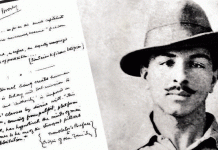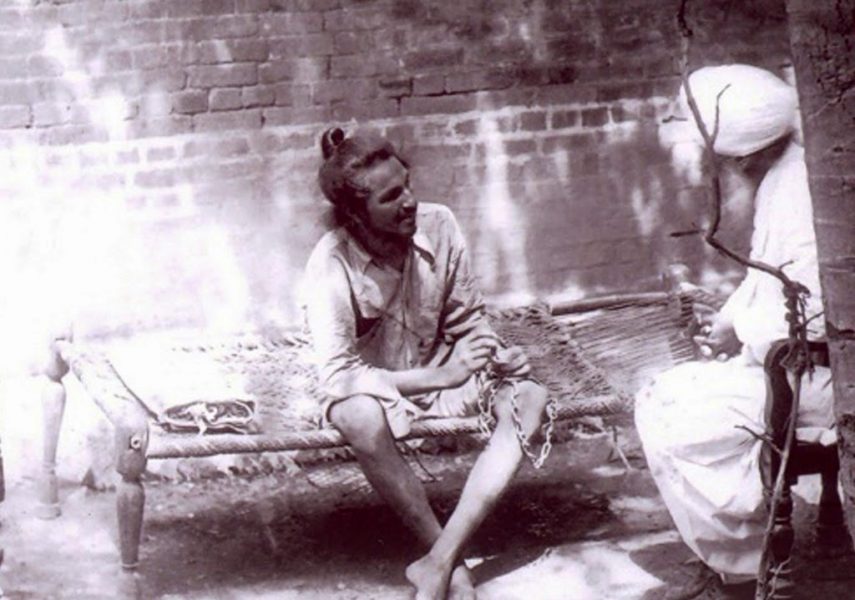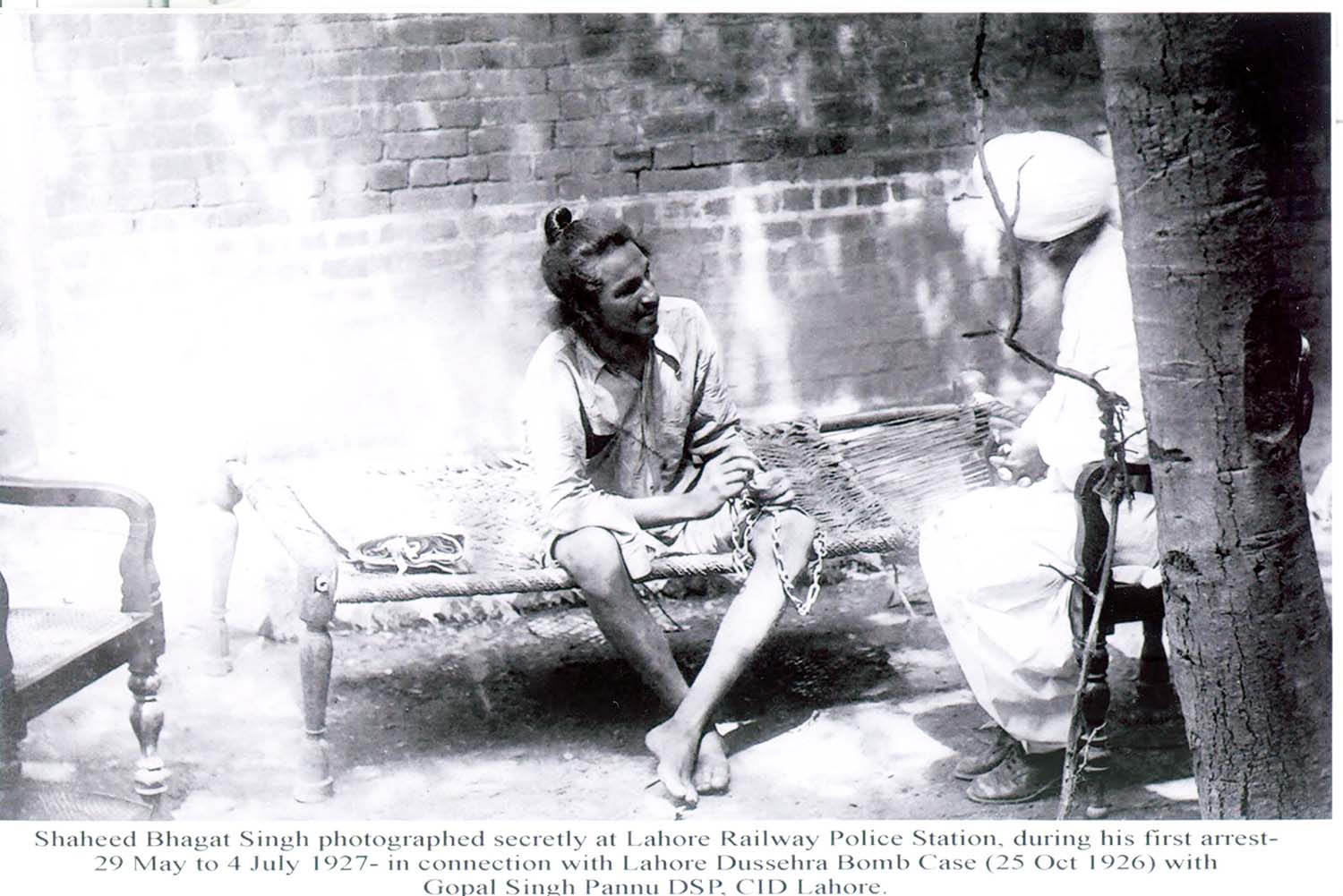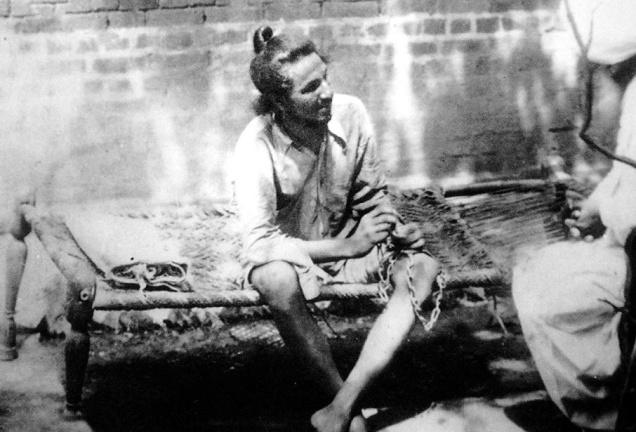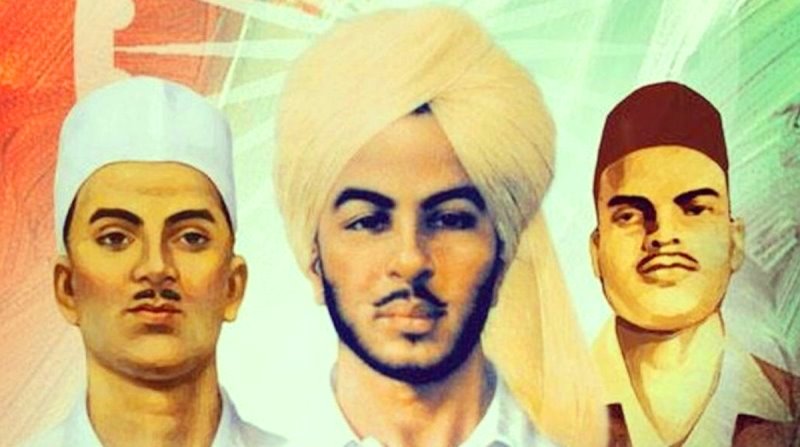
Bhagat Singh was not a violent revolutionary who fought against the British but a visionary, well-read thinker who dedicated himself to the cultivation of an India which was premised on equality, freedom and emancipation of the downtrodden.
Mohammad Zafar is working in the field of science education in district Uttarkashi of Uttarakhand.

[dropcap]O[/dropcap]n 23rd March, 1931, a day which is well known in India firstly because of its historical importance and secondly because Bollywood has dedicated many films to the martyrs of this day – Shaheed Bhagat Singh, Rajguru and Sukhdev. The reason I referred to the role played by Bollywood films is because they have led to the popularization of this martyrdom day. There are many days of the year that mark the martyrdom dates of leaders linked with the freedom movement but none have gained as much popularity with the masses as has this one.So what is so unique about 23rd March? Yes, historically it is an unforgettable day because the country had lost its three revolutionaries on this unfortunate day.. These revolutionaries are alive in the consciousness of the masses not only through the movies but because of their heroic story and different perspectives of looking at freedom and nationalism. But generally we see that their heroism is celebrated by the masses but not their perspectives. These revolutionaries thought about a free India, focused on reducing communal hatred and exploitation of weaker groups by power-holders and building a nation premised on egalitarianism.. Perhaps if we analyze the tremendous achievements that they had then we would find that Bhagat Singh and his team introduced socialist ideas into the Indian freedom struggle.
Bhagat singh and his comrades became a different group in the scenario of freedom struggle because these young educated revolutionaries not only fought for a British free India but their aim was to build a nation free of exploitative, oppressive forces, to counter exploitation of one human by the other and to construct a country where weaker groups like workers and farmers also enjoy liberty and rights. They also tried to live these utopian thoughts in their group Hindustan Republican Association which later became Hindustan Socialist Republican Association after the suggestion of Bhagat Singh in 1928. Bhagat’s thoughts sharpened the aims of the group build by Shachindranath Sanyal, Azad and others. When the group was facing problem after the arrest of Kakori train robbery convicts like Ramprasad Bismil, Ashfaq and others, Bhagat, Sukhdev and other comrades gave a new life to the association. The association HSRA was always focused on communal harmony where all members used to break taboos related to traditions or thoughts. They focused on meeting workers, farmers, students to spread their overall ambitions and worked on nurturing communal harmony among citizens by letters, articles, songs and plays under the name Naujawan Bharat Sabha. Their team consisted of committed revolutionaries like writer Yashpal, Bhagwati Charan Vohra, Rajguru, Manmathnath Gupta, Jaidev Kapoor, Shiv Varma, Jatin Das, Batukeshwar dutt and others along with Durga Bhabhi (wife of Bhagwati).
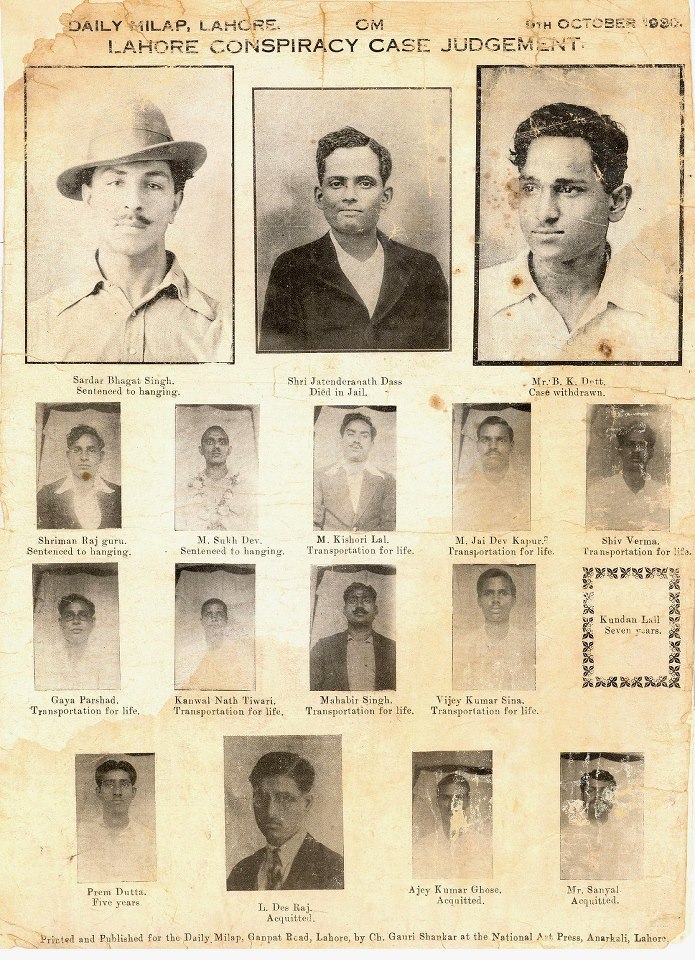
On looking at their strategies one can see that they were not at all some misguided but were committed to not just the violent agenda of overthrowing the British Empire but their aim was to build an exploitation less society with human values. Perhaps they had also realized that Saunder’s murder was not the way which can lead India towards a society of their dreams.In 1929 when they wanted to reach masses with their aims and thoughts, Bhagat Suggested the idea of explosion of a harmless bomb in Delhi Assembly not to kill anyone but “To make the deaf hear” mainly on the issue of notorious Trade Dispute and Public safety bills. While the planning of that plan was happening, on the demand of Sukhdev, Bhagat went with Batukeshwar Dutt in the assembly even when all of them knew that it was a risky step.. Manmathnath Gupt, a comrade of his team, wrote about this incident in his book “Krantikari Andolan ka Itihas” and shared how after a heated debate with Sukhdev, Bhagat agreed to go with Batukeshwar otherwise other comrades were not in favor of sending him. Sukhdev always favored him because according to him, in assembly a well-read person like Bhagat can argue well and put thoughts in a focused way. S. Irfan Habib gives a good account of Assembly bomb incident in his book “To make the deaf hear” about their slogans after assembly bombing. They shouted “Long live revolution”, “down with imperialism” and “Long live proletariats”. Bhagat’s idea was clear about the surrender and that was spreading their long vision to masses from Jail so that people can understand that they respect human life and they are not fugitives running to kill British. Their strike in Jail is an example of their thoughts about political prisoners and courage for improving scenario with nonviolent way too. Bhagat always supported critical thoughts and questioning attitude and opposed blindly following of any kind of thoughts. In his writing “why I am an atheist?” He raised logical questions on religion and god.
Bhagat Singh used to read a lot and always encouraged the youth to study more and more. He believed that study gives us logic to counter others. S Irfan Habib gives his long reading list from Mills, Rousseau, Trotsky, Lenin, Fourier, Darwin, Gorky, Voltaire, Marx, Angels, and many more (See To make the deaf Hear book). Now I see posters of Bhagat reading Geeta in Jail but actually he was not reading Bhagvad Geeta there. He read many thoughts which we study today in philosophy, political sciences, etc, along with revolutionary literature of French and Russian revolution. He has written also lots of good pieces which we today read and think how mature he was in his age of early twenties. His Achhoot Ki Samasya was on issue of untouchability. He also wrote on communal harmony of Hindus and Muslims. His most adorable works are “The philosophy of bomb”, “to young political workers”, and “Why I am an atheist?” which I enjoy reading again and again. I am sure whoever will read these documents will appreciate his vision about society.
He had logic behind using a harmless bomb and importance of Bomb to put forward their ideas. In why I am an atheist, he gave logical reasons why he didn’t believe god and what struggle and dilemmas he faced in his life because of his decided thoughts. He mentioned that in jail sometimes he thought to shout like praying with god but he resisted because of his promise with himself. Now look the letter to young political workers. Here, Bhagat gave importance of study, working among farmers and workers and other weaker sections of society, spreading communal harmony and questioning on that freedom where brown elite capitalists will replace the British but situations of masses would be same. He said it hardly matters our rulers are Indians or British, if some bunch of elites will rule India and exploitation of one Human by other would be continue. Reading these documents give us his far-sight as today these concerns are still dominant in reality. Elites are ruling country, inequity is high, gaps between rich and poor are deep, communalism is ruining us and hate mongers are leading in politics.
In today’s scenario I can just say that first of all we should break stereotypes on Bhagat that he was just a violent revolutionary who fought against British but we should look him as a visionary, well-read thinker who worked for an overall betterment of society. A person who worked for communal harmony, who believed that real freedom will come from farmers, workers and revolution should give an India based on reduction of exploitation.
The real tribute to Bhagat Singh, Sukhdev and Rajguru would be looking at their thoughts and philosophy in the light of their humanist agenda, socialist ideas, and fight against exploitation, inequity and injustice. In India when the youth is trapped in blindly following god men and self proclaimed leaders etc and spread communal hatred and fake propaganda on social media, when tribes, farmers and workers are still on the margins of development, when power is dominated by capitalist forces – in such a scenario remembering Bhagat Singh as a patriot is not enough. His ideas should reach the masses in a way what he and his comrades actually thought and implemented. Today many will remember him but with an ignorance about his actual ideas about freedom and revolution.

